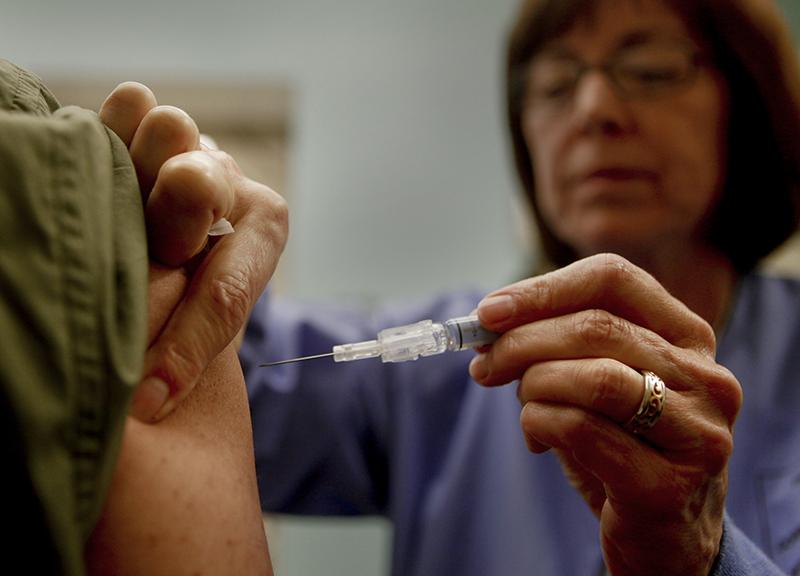With an increase in hospitalizations from influenza-like illnesses and six flu-related deaths, health directors from Cook County and Evanston are encouraging residents to get their flu vaccinations.
The Illinois Department of Public Health is reporting widespread influenza activity in Illinois, with 122 flu-related intensive care unit hospitalizations. In Cook County alone there were 44 confirmed influenza ICU admissions, according to a county news release.
Individuals who are 65 years of age or older and those with weakened immune systems are at higher risk for flu complications. However, this year, the ages of those admitted into the ICU range from toddlers to people in their late 90s.
“That demonstrates that anyone can get the flu and since the activity hasn’t even peaked yet, we expect more ICU admissions and potentially deaths in the coming weeks,” said Dr. Terry Mason, chief operating officer at the Cook County Department of Public Health, in a news release.
Those who have been severely ill with complications also include younger individuals with no underlying health problems.
Northwestern students are no exception. Lisa Currie, director of Health Promotion and Wellness, said the residential situations at universities makes contagious diseases like influenza more susceptible to spreading.
“Living in community means being exposed to a lot of germs,” Currie said.
Fortunately, according to Dr. John Alexander, executive director of Northwestern University Health Service, the flu season at NU has been very mild. Despite the high instances of flu in Cook County, there has been only about one diagnosed case per week at NU’s health services in the new year, Alexander said.
“Obviously some people might have it that don’t contact us,” Alexander said. “But it may be the mildest season in the 12 years I’ve been here.”
Flu activity usually peaks in January but can carry on as late as April, Currie said. The disease, which affects the respiratory system, is easily spread when an infected person coughs or sneezes.
This ease of transmission, Currie said, makes frequent hand washing and care with disposal of used tissues essential to preventing more infections.
She also noted the importance of taking a day off if you are sick so as to not infect others, despite how the culture of work and of students in the United States can discourage staying at home.
“If you do get sick, just let yourself be sick,” Currie said.
The Centers for Disease Control and Prevention recommends a yearly flu vaccine for everyone six months of age and older. Vaccines are still available at NUHS, Currie said.
“Flu shots are the first line of defense,” she added.
Email: [email protected]
Twitter: @jgerez_news



















